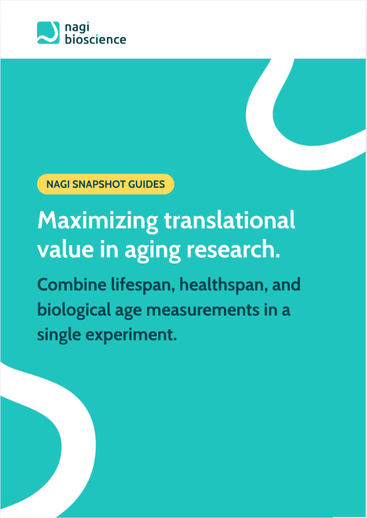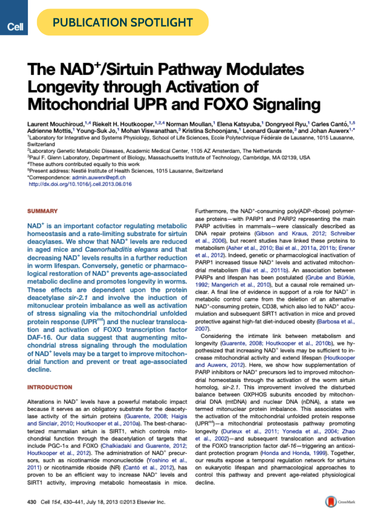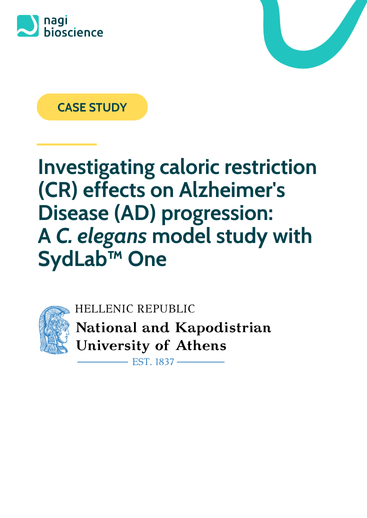The Challenge
Aging is the single greatest risk factor for chronic disease, yet its underlying biological mechanisms remain only partially understood.
Researchers face the dual challenge of complex biology and limited tools: conventional models are either too simplistic (in vitro) or too resource-intensive and ethically constrained (vertebrates).
This gap slows the generation of mechanistic insights and limits our ability to translate discoveries into meaningful interventions.
Key trends
The biology of aging is now recognized as a cornerstone of medicine, with nine hallmarks of aging serving as a framework for global research.
The average C. elegans lifespan is only 2–3 weeks, making it a proven model to accelerate the study of conserved aging pathways.
There is a unique opportunity to decode the mechanisms of aging with tools that combine the speed of invertebrate models with the rigor of high-throughput, quantitative science.
This opens the door to deeper mechanistic understanding, collaborative projects, and faster translation into biomedical innovation.
Streamlining C. elegans research with automation, reproducibility, and high-throughput
A Powerful in vivo Model
C. elegans is a transparent, genetically tractable organism with conserved aging pathways that mirror human biology, enabling real-time studies of mitochondrial function, stress response, proteostasis, and autophagy.
C. elegans has served as a rapid in vivo platform for mechanistic insights and drug discovery for over 60 years and has been recognized with 4 Nobel Prizes.
Automation and Reproducibility
Our SydLab™ One platform eliminates the variability of manual experiments.
With automated handling and AI-driven analytics, researchers gain consistent, reproducible datasets that accelerate discovery and support publication-quality results.
Multi-Phenotypic and Mechanistic Insights
From healthspan and lifespan to advanced biological metrics like Biological Age, our system provides a holistic view of aging.
Researchers can connect interventions to mechanistic pathways, generating insights that deepen the field’s understanding of aging biology.
The Swiss Knife Solution for Healthy Aging Discoveries
Nagi™ C-Age
High-throughput in vivo measurement of lifespan and motility.
Multidimensional insights in a single assay.
Nagi™ B-Age
AI-powered in vivo biological age and healthspan measurement to fast-track your innovation in just 10 days.
Dissect the mechanism of action among 5 vital traits.
With Nagi Bioscience, you gain:
Accelerated experimentation
Obtain Biological Age and health-span data in just 10 days; lifespan results in ~20 days.
Scalable studies
Screen and expand experimental your scope.
Mechanistic depth
Access pathway-specific insights that strengthen hypotheses and enhance publication impact.
Reduced entry barriers
Simplify complex worm biology workflows, even for non-specialists, with a fully automated, user-friendly platform.
Collaborative potential
Generate robust datasets that support grants, partnerships, and translational projects.
From teaching labs to cutting-edge research groups, Nagi Bioscience enables academia to decode the mechanisms of aging with speed, precision, and reproducibility.
Drive new discoveries that shape the future of biomedical science.

“By improving precision and enhancing reproducibility, SydLab™ One empower us to explore new frontiers in critical fields of medical science. We are excited to leverage this fully automated, end-to-end solution in our projects and accelerate the pace of scientific discovery.“

“Their services revealed new insights and opened up exciting possibilities for exploring the potential of our strains in health applications related to healthy aging, helping us advance our research further.“

“We had a highly positive experience with Nagi’s services. Their innovative assays provided a reliable alternative to mouse studies by leveraging the short lifespan of C. elegans and the high conservation of our target from worms to human.“







